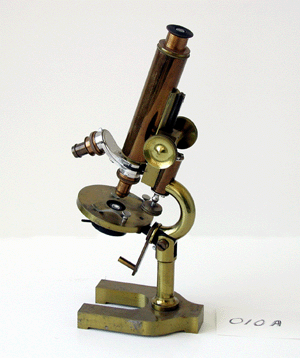
Peter Semmelhack, Founder and CEO of Bug Labs, sent us the following piece on creating an open source movement in health care technology. We thought it was interesting and something MAKE readers might want to chew over and chime in on. – Gareth
This is my first attempt at putting into words what I’ve been contemplating for several weeks, so you’ll have to forgive me if it seems a bit rough around the edges. But I’ve learned that when an idea bangs around in my head long enough, it’s usually a good idea to share it with others and either start a larger discussion or euthanize it. So here it is. Tell me what you think.
I believe we need an open source movement dedicated to health care. In essence, I want to rally the same fanatical zeal that has helped build some of the best, most complex software systems (LAMP, etc) ever devised to help address some of the world’s thorniest health care problems. I understand that’s a very easy thing to say and enormously complicated to actually do, but I’ll try to provide a simple example of how I think we could start. After all, open source as we know it today did not start with Linux.
Right now, if you have someone in your life with Type 1 diabetes, I bet it’s safe to say that you’d want notification (email, txt msg, IM, etc.) if he or she experienced a life threatening low or high blood sugar level. You’d especially want to know if they experienced one of these events and then fell down. It’s also a safe bet that you know getting this type of alert is virtually impossible today. There isn’t a device or gadget you can go buy that provides it. Building a wireless glucometer with an integrated accelerometer would not be too hard technically. In fact, I know a few people who could hack it together in a week.
The same could be said about a device that helps monitor the breathing of kids with juvenile asthma, or the whereabouts of someone suffering from Alzheimer’s. I could go on, but you get the point. There are hundreds, if not thousands, of specific (and specifically precise) tools that could be developed to help everyone lead healthier lives, and help communities take care of one another. If you look at all the active communities devoted to open source software – games, music, programming languages, etc. – I’d like to hope that it’s not too far a stretch to believe we can inspire the same energy and passion around improving the health and well-being of others. Think of the benefits associated with groups worldwide sharing their discoveries, methods and processes to achieve better results. This is not new territory. It happens everyday right now with FOSS communities.
One of the biggest hurtles is economics. Building these types of systems are expensive. But maybe there is a way address it. There are approximately 1M children suffering from juvenile diabetes in the US (29,000 new occurrences each year). If the community could design, build, and certify an open source prototype device that could potentially reduce mortality by even 5% per year, you would have a huge impact. Potentially, the Juvenile Diabetes Research Foundationa (JDRF) could sponsor its manufacture and sell it/give it to any/all sufferers. Assuming a reasonable price for making 1M devices (say $90 –> $90M to equip every child with a device, though, of course that wouldn’t be necessary) it would be within easy reach of any number of foundations and/or government programs. Or sell it at a profit with the proceeds going back to JDRF. Communities have worked this way in the past. Why not apply it here?
This is just one example. I’m sure there are better ones. But the point is, you could make the same case for virtually any health issue. The key to living longer, healthier lives, and lowering the costs of providing care is via better information. Getting better information is what good tools are designed to do. I’m arguing that we should explode the creation of these tools. But rather than rely solely on the world of business to lead the charge, why not organize and energize communities of hackers to create the technical foundations for a health care revolution unlike anything we’ve seen before? It can’t be any more complicated than hacking a Linux kernel ;)
P.S. For a list of some of the activity going on now around health care and open source, check here
ADVERTISEMENT






